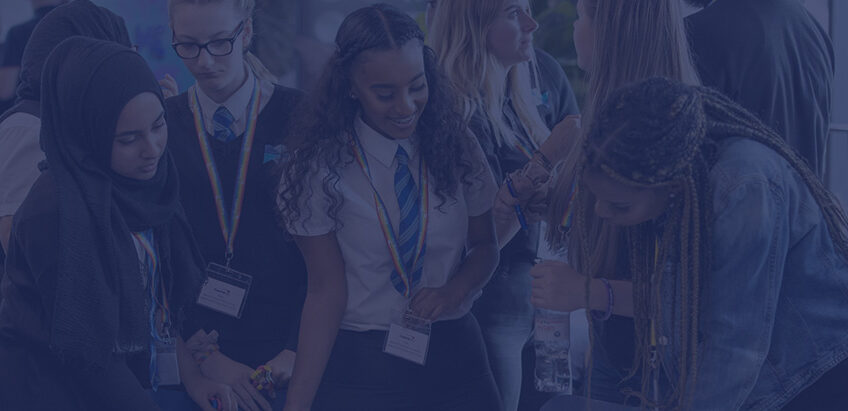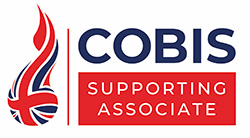Addressing The Psychological Impact of Disadvantage While Delivering The Crucial Academic Passports
Stephen Tierney, CEO, Blessed Edward Bamber Catholic Multi Academy Trust, describes their work with humanutopia
St Mary’s is an 11-18 Catholic Academy in Blackpool. The academy’s intake, based on key stage 2 prior attainment, is around the national average. Perhaps surprisingly then, many of our students come from some of the poorest areas in England: 23% come from the 1% most deprived areas in England (based on Index of Multiple Deprivation data). The other two members of the academy trust, Christ the King and St Cuthbert primary academies, also educate large numbers of pupils from economically and socially disadvantaged families.
The cumulative and exponential impact of deep poverty impacts on a child’s educational outcomes, health and personal wellbeing. In setting the strategic direction of the trust and our three academies, our objective ‘Healthy minds, healthy mindsets’ sat alongside a series of objectives relating to curriculum development, the professional development of staff and workload reform.
Endemic within the mindset of many of our children and young people is the belief that they have little control of their life; experience has taught them that difficult and sometimes bad things happen to them. Unchallenged, the danger is low aspiration and a lack of commitment to their studies and future employment or education. A chance meeting; some personal chemistry and the belief that working with humanutopia would help us to overcome these issues and has led to a multi-year partnership. We realised that together we would be able to unlock the potential of cross-age tutoring; enhance community building; and enable our young people to become masters of their own destiny.
humanutopia is an organisation, working across the UK and internationally, which looks to empower young people to make a positive change within their lives. Their primary focus is to work with young people on five core principles: hope, confidence, happiness, employability and relationships. By setting the scene and introducing the ‘heroes journey’, they look to inspire as many young people as possible to sign up and submit an application to become a hero. Everyone who applies is accepted. In their first year with us, with a little encouragement and targeted conversations, every disadvantaged student in the year group signed up to become a hero. Hero training challenges the young person to get out of their comfort zone, providing opportunities for self-reflection, growth and development. At this point, we really started to see a difference in our young people.
humanutopia have trained our young heroes in developing their own confidence, self-esteem, self-awareness and outlook on life. They have then cultivated a culture which allows our young people to be role models for younger children within our community. The heroes delivered specific sessions to year 8 students around literacy and numeracy development, through peer mentoring; delivered PSHE sessions to year 8 forms; provided support within the St Mary’s student care team and worked with year 5 pupils from a range of primary schools.
We are now at the end of our second year of working with humanutopia, who have currently trained well over 150 students (‘heroes’) to work within our academy. This work has also been replicated in our two primary schools within the trust. Each of their year 5 classes have been trained so they too can work with younger children in their schools and have a positive impact. This was part of the coherent implementation of ‘healthy minds, healthy mindsets’ across all phases and ages within the trust.
As an all-through trust, we are ideally placed to understand the need to nurture belief, resilience and wellbeing at key educational transition points; moving from a primary school into a more complicated, often much bigger, secondary school can be a concern for pupils, particularly the most vulnerable. The heroes used their focus, skills and time to create a HARmony transition camp. The students had to plan and implement a huge event, with over 200 primary school pupils attending a full week of transition at St Mary’s. As part of this week, it was the heroes’ responsibility to plan three days of workshops and activities that would positively engage our future year 7 cohort. As a year 6 St Cuthbert’s pupil commented: “I was worried about coming to a big school but the older boys and girls have made me really welcome.”
Last year was a huge success, with members of the year group stating “We have never felt so close as a year group as we are today” (Jemima). The students loved the heroes journey, and could not believe the influence they had on the young people from our Catholic family of primary schools.
Education is unlikely to be able to deliver deep social justice on its own; you have to raise a whole community. However, working with our children and young people, their families and the staff in our schools, we seek to address the psychological impact of disadvantage alongside delivering the crucial academic passports needed to access the next phase of education or employment. The long-term commitment of our two organisations to a symbiotic way of working is key to success.















